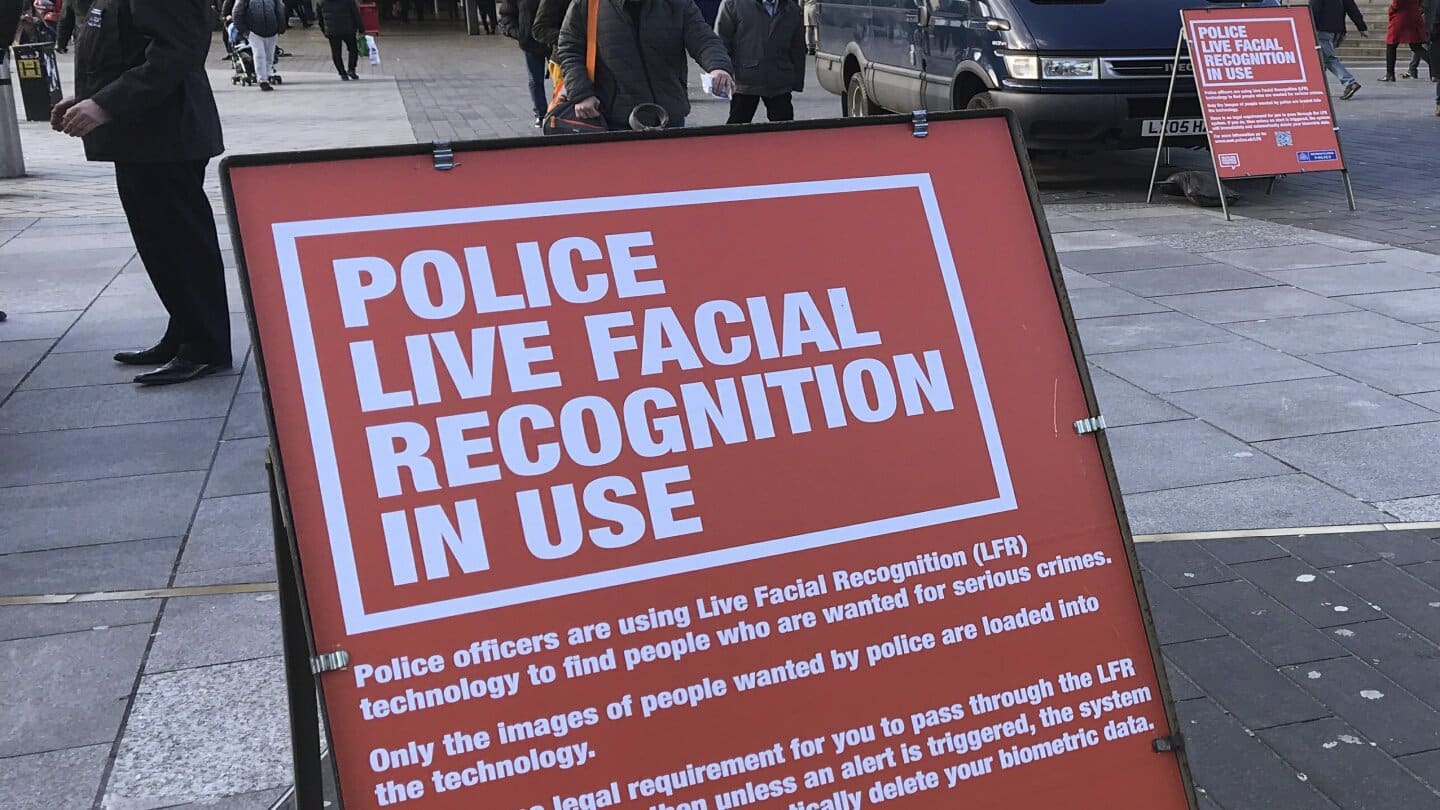Technology
UK Government Advances Live Facial Recognition for Police Use

The UK government is preparing to implement live facial recognition technology (FRT) for police forces throughout the country. This move comes with an emphasis on establishing clearer guidelines about how, when, and where the technology can be applied. During her remarks at the recent Labour Party Conference, Policing Minister Sarah Jones confirmed that consultations are underway to develop comprehensive guidance for law enforcement agencies.
Jones expressed confidence in the effectiveness of live FRT, stating that prior deployments have proven to be “a really good tool that has led to arrests that wouldn’t have come otherwise.” However, she acknowledged the need for a structured approach to ensure the technology is used appropriately and effectively in the future. “We just need to make sure it’s clear what the technology is going to be useful for going forward,” she said.
Need for Structured Guidance
The call for structured guidelines arises from concerns voiced by privacy and civil rights advocates. They have highlighted the absence of a formal framework surrounding the use of live facial recognition technology. Advocates argue that clear parameters are essential for protecting citizens’ rights while allowing law enforcement to utilize advanced technologies.
According to The Register, police forces have been quick to adopt live FRT, but their approaches have lacked consistency. The question remains whether law enforcement will adhere to any forthcoming guidance effectively. In a discussion on the Biometric Update Podcast, former UK Biometrics and Surveillance Commissioner Fraser Sampson pointed out the pervasive nature of surveillance technology in the UK. He noted that live facial recognition is increasingly integrated into the existing surveillance framework, which already includes extensive monitoring systems.
In August 2023, reports indicated that as many as 51,000 faces were scanned in London Underground stations in a single day. This statistic underscores the scale of facial recognition technology’s deployment and raises questions about the oversight of such systems. Furthermore, the Home Office announced that seven additional police forces would begin utilizing ten new vans equipped with live facial recognition technology.
Concerns Over Misidentification
The potential for misidentification remains a critical concern, particularly regarding the technology’s accuracy in identifying individuals with darker skin tones. This issue has prompted discussions about the implications of using live facial recognition in policing. In a broader context, similar technologies have been employed in other countries, such as Hungary, where police have used live facial recognition to monitor LGBTQ-themed events.
While establishing guidelines represents a step forward, experts stress that enforcement of these guidelines must include penalties for non-compliance. Without effective repercussions, there is a risk that the guidelines may not be followed in practice. To paraphrase musician Eddie Grant, without proper oversight, the situation may devolve into a scenario where police are excessively monitoring individuals.
As the UK government moves forward with its plans, the balance between leveraging innovative technology and protecting civil liberties will be a critical focal point. The outcome of these consultations and subsequent guidelines will likely shape the future of policing in the UK, as well as set a precedent for how such technologies are implemented globally.
-

 Science3 months ago
Science3 months agoToyoake City Proposes Daily Two-Hour Smartphone Use Limit
-

 Health3 months ago
Health3 months agoB.C. Review Reveals Urgent Need for Rare-Disease Drug Reforms
-

 Top Stories3 months ago
Top Stories3 months agoPedestrian Fatally Injured in Esquimalt Collision on August 14
-

 Technology3 months ago
Technology3 months agoDark Adventure Game “Bye Sweet Carole” Set for October Release
-

 World3 months ago
World3 months agoJimmy Lai’s Defense Challenges Charges Under National Security Law
-

 Lifestyle3 months ago
Lifestyle3 months agoVictoria’s Pop-Up Shop Shines Light on B.C.’s Wolf Cull
-

 Technology3 months ago
Technology3 months agoKonami Revives Iconic Metal Gear Solid Delta Ahead of Release
-

 Technology3 months ago
Technology3 months agoApple Expands Self-Service Repair Program to Canada
-

 Technology3 months ago
Technology3 months agoSnapmaker U1 Color 3D Printer Redefines Speed and Sustainability
-

 Technology3 months ago
Technology3 months agoAION Folding Knife: Redefining EDC Design with Premium Materials
-

 Technology3 months ago
Technology3 months agoSolve Today’s Wordle Challenge: Hints and Answer for August 19
-

 Business3 months ago
Business3 months agoGordon Murray Automotive Unveils S1 LM and Le Mans GTR at Monterey









